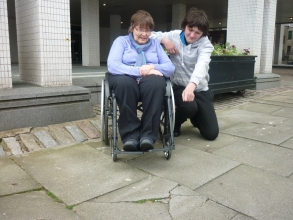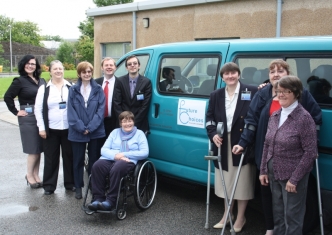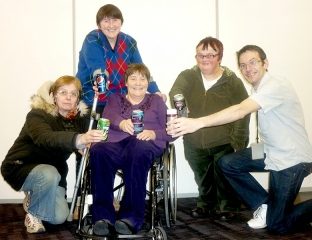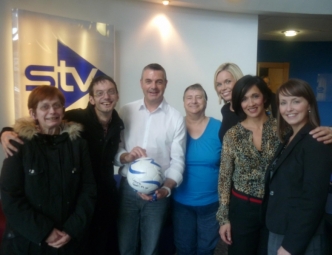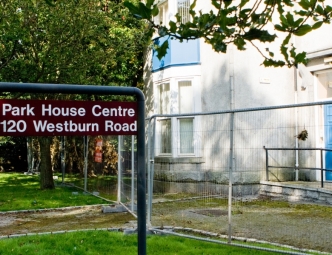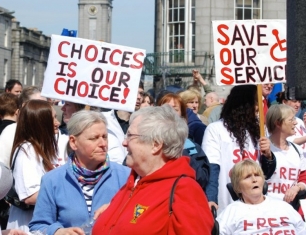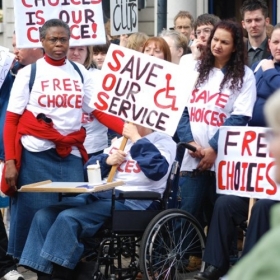The curtain falls on the sixth and final act of Jonathan Russell’s assessment of the tragi-comedy that is services for the disabled in Aberdeen – but what will be the last word? Is there a way forward for services for people with Disabilities in Aberdeen?
We are now faced as a city with considerable challenges due to both the wider financial and economic situation in the UK and the bleak financial situation that Aberdeen City Council has got itself into.
The situation with the SNP refusing to let councils increase the community tax has to be challenged and this is particularly relevant to oil rich Aberdeen where the majority of people could afford an increase.
Other possibilities would be to re introduce the SNP’S idea of taxing large retailers but it would have to be clear were the money collected was going. The Oil related companies have given very little back to Aberdeen or the wider Scottish/UK despite their huge profits.
ACVO (Aberdeen Council of Voluntary Organisations) have been working hard to get the private sector more involved in supporting the struggling voluntary sector and this should be encouraged. We have to make decisions on how best in difficult circumstances money is to be spent. We also have to make sure that the money spent is at best value for the needs of its citizens and end the prevailing culture of waste.
As a city we have to make bleak choices as to what is important to us as citizens.
Do we want to support the more vulnerable in our city including the disabled, the elderly, vulnerable children and the homeless or are our priorities more about grand projects like the replacement of Union Terrace Gardens, the Bridge over the Don crossing, the Aberdeen Western Peripheral Route, money once more to bail out the Aberdeen Exhibition Centre or a new Olympic Swimming Pool?
All these projects have to be paid for and as with most capital projects, costs are likely to escalate and eat into other budgets. At present it is the vulnerable people in our communities who are taking the biggest hit.
Is this what the citizens of Aberdeen really want?
As well as making these decisions we have to make sure that we are spending our money to its best effect. This means putting a priority on cutting management costs and the inappropriate cost of consultants and not on the cutting of front line services. Over the last year £29,500 was spent on an outside grouping ‘Moveable Feast’ finding out what services people with learning disabilities want. This is a scandal when the resources to actually run services are so low.
My experiences of management in Aberdeen City Council left me with major concerns about the organisation. At present there is a rift between frontline staff and management. The roles of both managers/strategists and councilors need to be urgently reviewed.
encouragement and support of front line staff has to take priority if we are not to have an increasingly failing organisation
In particular councilors and managers have to become much more visible and supportive to front line staff. Strategists have to engage with the front line and get away from their ivory towers and be expected to carry out work themselves rather than relying on consultants. The ethos has to be one of Public Service and not one of career moves and covering ones back which is sadly the prevailing culture.
The encouragement and support of front line staff has to take priority if we are not to have an increasingly failing organisation with an increasingly demoralised staff group. Finance and how to provide the optimum amount of service to the public needs to be at the centre of any service delivery.
The ideas in the disability area presently being mooted is the idea of providing individual budgets. The idea of individual clients having their own budgets to purchase services has been on and off the agenda for several years. Individual budgets have the potential to empower individuals to get the types of services that they themselves want.
However, from the experience of Direct Payments, a similar scheme that has operated for at least eight years, it is only families who are more able who have been interested in being involved.
For many the whole process just brings more stress onto already overburdened families. One of he main problems with the idea is that at present there is little choice as to what to purchase and to complement this people will only get services if they are seen as fitting the Eligibility Criteria as agreed by management.
This has led unsurprisingly to the unit costs of services going up. So that the cuts in services are greater than the money that is being saved.
Care Management is the process which operates across the UK in the management, finance and support of care packages. The original idea of Care Management was two-fold, firstly to co-ordinate individual packages, but secondly to develop needs led services at less cost.
What has happened in reality, in Aberdeen at least, to my knowledge is that no needs led services have ever been set up but what we have in its place is a highly bureaucratic system with much of the same information going onto different forms that is only about the seeking of funding for individual clients to go to already existing services.
One of the crazy things that happened was Single Status
As stated earlier this stops them thinking of services such as those at Aberdeen College that do not cost the council money being used. We have moved into a highly bureaucratic and risk adverse culture where the emphasis is on covering back rather than service delivery.
The danger is that the new system of individual payments ends up going down the same route as care management and direct payments with individuals spending their money on individual support workers rather than sharing resources with others which would be more cost effective. This will prove expensive and restrict support to fewer individuals also with further cuts coming down the line resources are going to become increasingly short.
The days of Thatcherite individualism are surely over, even David Cameron has moved on to ideas about the Big Society.
The other process that is happening is in the name of saving costs and getting better outcomes services are being re-provisioned away from the statutory sector to the voluntary and private sectors.
One of the crazy things that happened was Single Status (which was meant to be about equal opportunities and more equality). Salaries did go up for most levels and some went down. Many of those that went down re – did their job descriptions and their salaries went back up.
The low paid staff in many services had their salaries increased. The services they worked for like Home Care, Home Support and the Community Placement Team were then closed down and/or some form of re-provision took place. Of course the managers and strategists at the top have not been re-provisioned. They still have their increased high salaries.
public services that could be flexible to individual need and crises have been replaced by rigid contracts in the private sector for individual users
It is only staff on the front line and the services that have been primarily affected. Further in the 2009 round of Aberdeen City Council Social Work and Wellbeing cuts it was agreed to cut management and Strategic posts to be seen as being more balanced. Yet many of these posts were in reality never cut as this would affect the amount of work being undertaken by ‘low paid’!? management.
Whether putting services out to the voluntary and private sector leads to better outcomes is debatable and needs to be monitored. No doubt at times it does and at others it does not. What we do not know is whether costs have really been saved, as the costs of commissioning, pensions and redundancy payments are part of the costs of this process.
Also, many experienced and committed staff are no longer involved in the process of providing services.
What we also know is that public services that could be flexible to individual need and crises have been replaced by rigid contracts in the private sector for individual users. This means that in situations when clients need less or more of a service; they still get the same service. This stops the empowerment of clients when they could be doing more on their own, and also restricts services from providing more support when it is needed rather than having to go through the whole process of re-assessment.
We need to provide services that are good value both in terms of cost and in terms of providing the optimum service provision within the limited resources that we have. The Community Placement Team was a good example of this, actually bringing in resources and working effectively — it was closed.
Create, Inspire ‘s Local area co-ordination and Hub, Reach Out, Access to Training and Employment and Cornerstone employment service have the potential to start building up of services but my concern is that Aberdeen City Council will continue to waste money rather than putting emphasis on the delivery of services.
The main end point of the Community Placement Team was to get people with Disabilities into some form of work. As well as giving to individuals concerned the opportunity of having what most other people experience in being able to work this form of support is cost effective as most of the support is provided by employers.
Cornerstone Community Care have continued to continue to provide an employment service and this should be supported and encouraged.
We need to be doing the following to make the most of the resources we have.
- Get back to partnership working and making use of resources which are of minimal cost to Aberdeen Council.
This would mean more joined up working between and with Schools,AberdeenCollegeand resources like the Workers Educational Associations ‘Reach Out’ Project
- Work more effectively with carers, clients and their friends
- Start working more again with employers to provide work opportunities
- Get back to thinking in relation to groups rather than individuals and integrate these groups as much as possible into the wider community. What most people with learning disabilities want is social contact
- Concentrate resources on service provision such as that provided by Create, Inspire, Cornerstone, Reach Out and Access to Training and Employment with an emphasis on Best Value
- Focus management on supporting front line services
- Have clearer roles and expectations of both management and frontline staff and concentrate on improving morale of all staff in Aberdeen City Council
- Cut back on Strategists (many who were appointed in a spending frenzy around 2007) and spending on outside bodies such as Movable feast and other Consultants.
- Start thinking about how to bring money in by working more closely with the private sector and investigate and go for any potential funding streams. This should be the responsibility of management/ strategy. An excellent example of where this has been done is Aberdeen Foyer.
As a city we also have to decide how we spend what will be increasingly limited resources following the impact of national cutbacks. I would suggest that people with disabilities should be a priority and to do otherwise would be a sign of a city that has forgotten to care.
